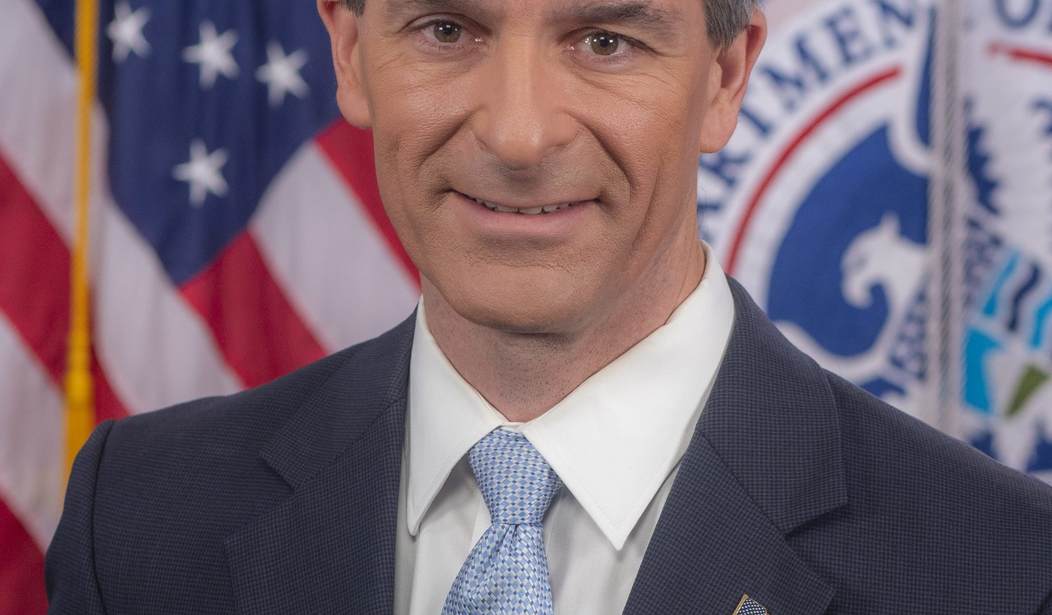On Wednesday, U.S. Citizenship & Immigration Services (USCIS) announced a small policy change bringing USCIS rules about adoption and the naturalization process for some children of military and U.S. government employees overseas. Yet news quickly spread that USCIS was removing the automatic citizenship of military children. The agency attributed this to a “misinformation campaign.”
“As you may have heard, a misinformation campaign is going full force on aa slight tweak in a USCIS policy manual to comply with the State Department,” Diana L. Banister, senior advisor to the director, wrote in an email to reporters.
A USCIS official explained the policy change to PJ Media, noting that it will only affect about 20-25 people annually.
“This policy change rescinds previously established USCIS policy, which stated that certain children who were born outside the United States were considered ‘residing in’ the United States, for purposes of acquiring citizenship,” the official said. This policy clashed with State Department policy, “which resulted in problems when, for instance, parents applied for a passport and were rejected because State would say the child didn’t meet the ‘residing in’ requirement to become a citizen.”
“There is still a pathway to citizenship for these children, it simply requires different paperwork,” the spokesperson added.
USCIS Acting Director Ken Cuccinelli explained the change on PBS News Hour. “We could have communicated this a lot better, but it is almost nothing,” he said.
“All the same people still become citizens at birth,” Cuccinelli explained, answering fears that children born to active U.S. military stationed abroad would lose their citizenship. “It’s for people who are born outside the United States who are not U.S. citizens when they are born. … The only thing that has changed here is the forms they have to fill out.”
He explained that USCIS “was not conforming to the law,” so some families returning to the U.S. would expect their children to be considered citizens only to find the State Department would not recognize them.
Under the new policy, the process “doesn’t even take longer. There’s still paperwork, but it’s different paperwork.”
“We could have communicated this a lot better, but it is almost nothing.”
— @USCISCuccinelli joins @NewsHour to clarify the Trump administration's new rules for children born outside of the US to American military personnel and other government employees https://t.co/h2bAI83Dtr pic.twitter.com/svVxReUuXj
— PBS NewsHour (@NewsHour) August 29, 2019
So, if the policy does not apply to the children of U.S. military or other U.S. government employees born abroad, to whom does it apply?
According to the USCIS spokesperson, it applies to “children residing outside the United States who were born outside the United States to: non-U.S. citizen parents and adopted by a U.S. citizen, U.S. government employee, or U.S. service member after their birth; non-U.S. citizen parents, such as a lawful permanent resident U.S. government employee or U.S. service member who naturalized only after the child’s birth; or two U.S. citizen government employees or U.S. service member parents who do not meet the residence or physical presence requirements to transmit citizenship to their child at birth (or one non-U.S. citizen parent and one U.S. citizen parent who does not meet these requirements).”
According to immigration law, in order for a child of a U.S. citizen born abroad to automatically gain citizenship at birth, one of that child’s parents must have lived within the U.S. or one of its possessions for at least five years, at least two of which were after they turned 14 years old.
The 11-page document announcing the new policy proved rather dense and difficult to understand, and among its policy highlights it listed that the policy “clarifies that temporary visits to the United States do not establish U.S. residence and explains the distinction between residence and physical presence in the United States.”
Perhaps for this reason, some thought the policy took aim at birthright citizenship, the policy that makes anyone born on U.S. soil a citizen. President Donald Trump has expressed interest in reversing this policy.
In an interview with Task & Purpose, one USCIS official appeared to confirm the claim that the new policy removed the automatic citizenship of children born to U.S. military parents abroad. Only in very rare situations would this be true, such as if a U.S. service member married a foreign woman who already had children born overseas. Even in that case, the policy allows for such a child to apply for citizenship the same way he or she would under State Department rules.
The USCIS spokesperson who spoke with PJ Media would not confirm or explain Banister’s suggestion that the confusion was the result of a misinformation campaign. It may have just been an honest misunderstanding. PJ Media’s Stephen Green reported the early news of the policy, which did suggest the citizenship of children born to U.S. service members abroad might be in jeopardy. Green updated the story shortly thereafter, as it became clear this was not the case.
As in so many cases, the honest misunderstanding may have been compounded by the fact that so many media outlets would rush to condemn the Trump administration.
Follow Tyler O’Neil, the author of this article, on Twitter at @Tyler2ONeil.









Join the conversation as a VIP Member